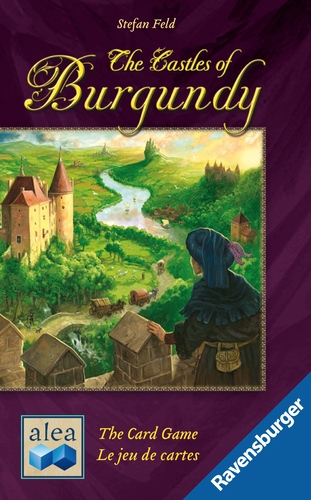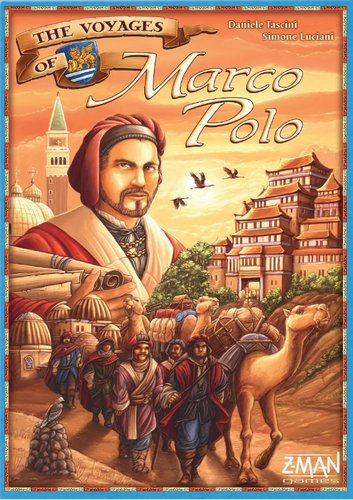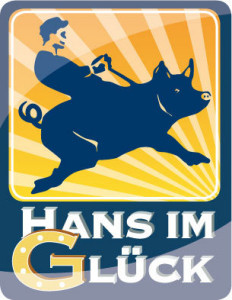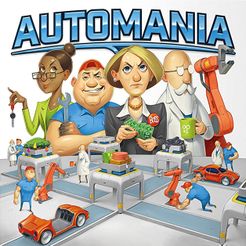The four tournament games played at the European championships of 2016 were
- Automania – Aporta Games
- Marco Polo – Hans im Glück
- The Castles of Burgundy: The card game – ALEA/Ravensburger
- Shakespeare – Ystari Games


Stefan Feld
The Hundred Years’ War is over and the Renaissance is looming. Conditions are perfect for the princes of the Loire Valley to propel their estates to prosperity and prominence. Through strategic trading and building, clever planning, and careful thought in The Castles of Burgundy: The Card Game, players add settlements and castles, practice trade along the river, exploit silver mines, farm livestock, and more.


Simone Luciani
Daniele Tascini
In 1271, 17-year-old Marco Polo started on a journey to China with his father and older brother. After a long and gruelling journey that led through Jerusalem and Mesopotamia and over the “Silk Road”, they reached the court of Kublai Khan in 1275.
In The Voyages of Marco Polo, players recreate this journey, with each player having a different character and special power in the game. The game is played over five rounds. Each round, the players roll their five personal dice and can perform one action each turn with them.After five rounds, the game ends with players receiving victory points for arriving in Beijing, fulfilling the most orders, and having reached the cities on secret city cards that each player gets at the start of the game; these points are added to the VPs gained during the game.


Hervé Rigal
The theaters of London are abuzz. In one week, her majesty the Queen will attend their new shows and will grant her support to one of the troupes. It’s the chance of a lifetime for the young authors who are inflaming the populace with ever more audacious and motley plays. But how do you create a masterpiece in such a short time? Whoever has the answer to this thorny question will probably enter the rolls of history!
The theaters of London are abuzz. In one week, her majesty the Queen will attend their new shows and will grant her support to one of the troupes. It’s the chance of a lifetime for the young authors who are inflaming the populace with ever more audacious and motley plays. But how do you create a masterpiece in such a short time? Whoever has the answer to this thorny question will probably enter the rolls of history!In Shakespeare, players are theater managers who must recruit actors, craftsmen, jewelers and others in order to assemble everything needed for the play’s performance at week’s end.
On all but the final days, players must allow characters who performed to rest, with only one of those characters being able to work the next day. Thus, the more you put them to work today, the less you’ll be able to do tomorrow — but those who don’t plan to do as much act before other players, so that might be a good thing.In the end, players must pay their actors, with each unpaid actor blemishing your reputation and costing you points. Whoever finishes with the most prestige points wins.

In Automania, you run a car factory, trying to produce the most popular cars in the market. To achieve this, you buy tiles to upgrade and customize your factory, and hire specialist employees to help you.Central to the game are the factory boards: Each player has a factory with three assembly lines, and each assembly line produces one type of car.
You can put machine tiles along your assembly lines to change the specifications of your cars. However, your three assembly lines intersect, so each machine tile placed might affect more than one type of car — which means you have to think carefully about where you put those machines.
When a car is produced, it must be sold in one of two markets, and the better the specifications of the car is in line with the demand in the chosen market, the more popular the car will be. The most popular cars reap the highest profits, earning money or prestige — which is what you need to win this game.
With many thanks to boardgamegeek.

